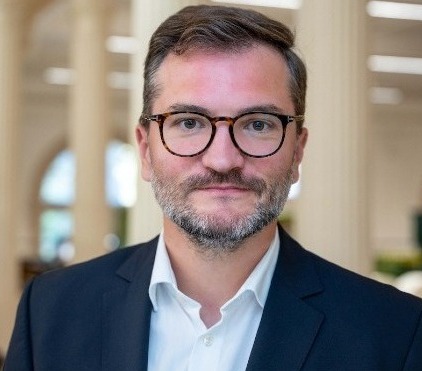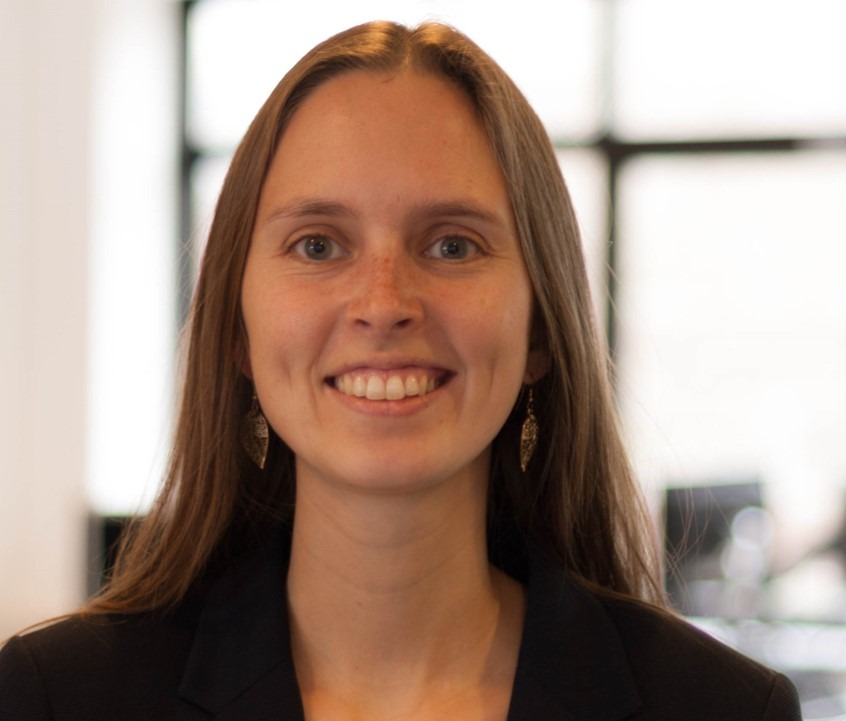Do we really want smart cities?
The European Researchers' Night, a science festival with mini-lectures, experiments, music and dance, returns to Groningen on Friday 27 September. In the run-up to the event, participating researchers give a sneak preview of their programme. Today, UG scientists Oskar Gstrein and Joëlle Swart discuss ‘smart cities’. According to them, a clear vision for smart cities is lacking so far. A loss of autonomy and exclusion are at risk.
Text: Jelle Posthuma
In a smart city, information and communication technology (ICT) is used to manage and control urban areas. Data collection using sensors and cameras is both a crucial and troublesome part of the smart city. During the European Researchers' Night, Gstrein and Swart want to make the audience aware of this data collection.


|
Oskar Josef Gstrein is associate professor in the Department of Governance and Innovation at the Campus Fryslân interdisciplinary faculty. He is also theme coordinator ‘Data Autonomy’ at the Jantina Tammes School of Digital Society, Technology and AI. You can also read his recent research on smart cities.
--
Joëlle Swart is assistant professor of Journalism Studies at the Faculty of Arts. In addition, she is theme coordinator ‘Digital Inclusion’ at the Jantina Tammes School.
|
Fundamental questions
Swart points to smart doorbells. ‘These cameras continuously collect video footage, which is stored in the cloud owned by a large company. It is an example of how public and private are starting to mix.' According to the two researchers, it is vital to think carefully about a smart city before actually making the transition. Gstrein: ‘There are definitely gains to be made in terms of efficiency and safety, for example in traffic, but there are also important downsides and a sharp vision on this is lacking.’
According to the researchers, numerous questions come into play. What kind of data is collected, what is it used for and where is it stored? What does data collection mean for our privacy? And what is the role of large, private companies? According to the researchers, these questions have not yet been sufficiently answered. ‘It is not about nice applications and special tools, it is much more fundamental: we need to think about where we want to go as a society,’ says Gstrein.
The associate professor believes that smart cities have a major impact on public spaces. Based on collected data, algorithms are trained. ‘This training allows algorithms to predict, for example, how many people will be on the Grote Markt in a fortnight' time and the things they will be doing. This takes away spontaneity, the very thing that makes public spaces fun and interesting. It also leaves less room for personal autonomy and alternative lifestyles.’
Digital gentrification
A smart city additionally affects accessibility, Swart argues. Certain ‘smart’ services, such as reporting a full waste container online, should also be available to people without laptops or smartphones, or people with disabilities. ‘There are many people who are digitally disconnected, who are low-literate digitally. We need to think about in what way the smart city is a solution and for whom it is ‘smart’. What leads to an improvement in public services, and where is digitisation not needed at all and will it even lead to exclusion?’
According to Gstrein, the (in)accessibility of a digital society can lead to technological gentrification: those with digital skills determine what happens in a neighbourhood. 'In Google Maps, they recently introduced the 'neighbourhood vibe'. People can use this tool to rate a neighbourhood. The idea is that users, for example on a trip to Paris, immediately learn what nice neighbourhoods are and where the highlights like a fountain or a nice café can be found. However, it also very much determines the perspective on a neighbourhood.’
This digital perspective affects, for example, house prices or the reputation of schools and other facilities in a neighbourhood. ‘A negative perspective leads to prejudices that greatly affect residents.’ Such prejudices are already there, but datafication adds an apparent objectivity. ‘While data is never objective,’ Swart stresses. 'It is always a choice of what is measured. Data only reflects our behaviour, while there is a context involved. Your interests and motivations are not taken into account. That can give a very distorted representation.’
Legislation and political choices
An important recent legal development is the so-called EU Act, says Gstrein. This European law defines, among other things, what facial recognition cameras could be used for. 'For example, in tracing missing persons, or criminals. Now the limit is set to a minimum of four years' imprisonment. But in practice, this means you can install these systems at any major railway station or airport.'
In other words, the digital infrastructure is here to stay. ‘How are we going to monitor it, so that it is not abused?’, Gstrein wonders. ‘In Nice, a lot of high-resolution cameras were installed after a major terror attack. The costs involved were huge. Measuring more is always put forward as a solution. But does more data actually solve our problems?' Swart adds: ‘Perhaps the solution lies in more human contact, rather than further digitisation and datafication.’
According to her, the way we deal with a ‘smart city’ is ultimately a democratic decision. ‘People should be able to make a political choice. I find it shocking that the programmes of political parties hardly contain any positions on digitisation, while there are many political issues. In this respect, there is still much work to be done in the Netherlands.’
European Researchers' NightThe four Schools for Science and Society of the University of Groningen, together with Forum Groningen and other partners, will be hosting the European Researchers' Night on Friday evening 27 September. It will be a vibrant science festival with over 40 programme elements. Stadjers, Ommelanders, students, non-students, researchers or non-researchers: all curious people are welcome. Tickets are still available.
--
The European Researchers' Night (ERN) is an annual festival on the last Friday of September in several European cities, aiming to bring science to a wide audience. European Researchers' Night is co-funded by the European Commission, under the Horizon Europe Research and Innovation Programme, grant agreement No.101162172.
|
| Last modified: | 17 September 2024 3.09 p.m. |
More news
-
24 March 2025
UG 28th in World's Most International Universities 2025 rankings
The University of Groningen has been ranked 28th in the World's Most International Universities 2025 by Times Higher Education. With this, the UG leaves behind institutions such as MIT and Harvard. The 28th place marks an increase of five places: in...
-
05 March 2025
Women in Science
The UG celebrates International Women’s Day with a special photo series: Women in Science.
-
16 December 2024
Jouke de Vries: ‘The University will have to be flexible’
2024 was a festive year for the University of Groningen. In this podcast, Jouke de Vries, the chair of the Executive Board, looks back.
